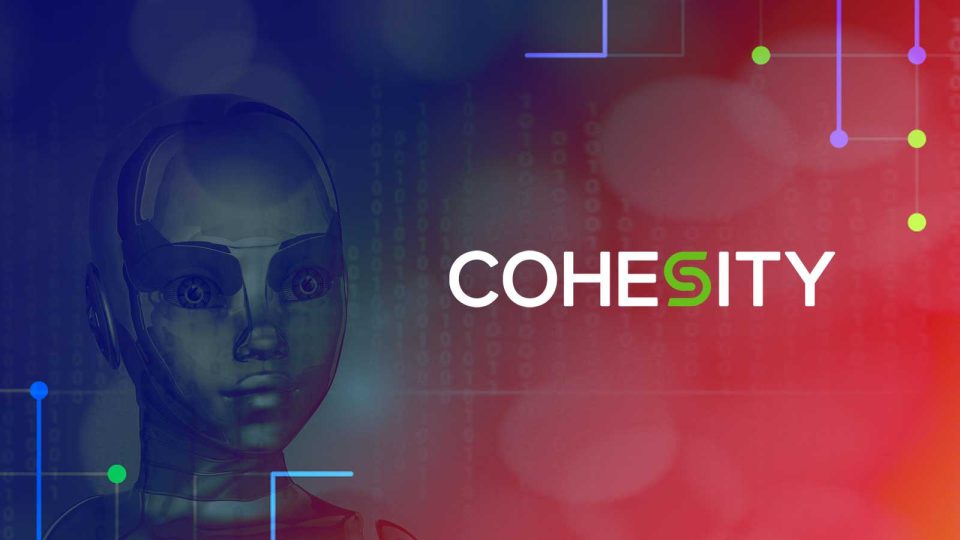Cohesity, a company focusing on AI-powered data security and management, announced a collaboration with NVIDIA to enable organizations to harness generative AI and data using NVIDIA NIM microservices. Integrating NVIDIA AI Enterprise into the Cohesity Gaia platform enhances this capability.
Cohesity Gaia, the company’s all-in-one, patent-pending AI suite, would integrate NVIDIA NIM with other technologies to provide a robust, enterprise-class, multicloud data platform ready for implementation with generative AI solutions.
How Will NVIDIA’s Investment and Integration Enhance Customer Capabilities?
Cohesity’s recent fundraising efforts have secured NVIDIA as a new investor.\n\nWith Cohesity Gaia integrated with NVIDIA AI Enterprise, customers can directly leverage those advanced AI capabilities in their Cohesity environment, improving operational efficiency, enhancing security insights, and maximizing data value. Key benefits include:
- Creating domain-specific and high-performance generative AI models using customers’ Cohesity-managed data with NVIDIA NIM. This allows customers to fine-tune their large language models and align them with their organization’s brand voice.
- Leveraging a generative AI assistant to ask questions about the insights’ underlying data—deployment, configuration information, and security details.
- Empower developers and partners to use Cohesity’s secondary data to create generative AI applications. Customers can share data securely and in a user-friendly format for further development and deeper insights.
How does NVIDIA NIM enhance Cohesity Gaia Capabilities?
Now, with NVIDIA NIM, Cohesity Gaia customers can implement generative AI intelligence directly into their data backups and archives. All Cohesity Data Cloud customers can use NVIDIA-optimized generative AI to achieve powerful, data-driven insights from their backups and archives. Customers will enjoy more insight, increased efficiency, innovation, and growth.
Cohesity Gaia was designed to meet evolving customer needs seeking to extract real value from their enterprise data using AI. Cohesity has long used AI/ML in applications for ransomware hunting, anomaly detection, threat intelligence, data classification, data entropy, and capacity prediction. With the advent of Cohesity Gaia—based on patent-pending Retrieval-Augmented Generation (RAG) technology—new opportunities are now available for customers to analyze and discover insights from their data in previously unimagined ways.
FAQs
1. What Are the Benefits of Using AI in Data Backup and Archiving?
AI in data backup and archiving improves data retrieval speed and accuracy, enhances data compression and deduplication, and provides intelligent data management. It enables predictive maintenance of storage systems, reduces downtime, and offers deeper insights into data usage patterns, helping organizations optimize their data storage strategies.
2. What Is the Role of Microservices in AI Integration?
Microservices in AI integration break down complex applications into smaller, manageable services that can be developed, deployed, and scaled from scratch. This modular approach enhances flexibility, allows for faster updates, and improves the overall efficiency of AI deployments by enabling specific components to be optimized and scaled as needed.
3. How Do Companies Leverage AI for Ransomware Protection?
Companies use AI for ransomware protection by employing machine learning algorithms to detect unusual patterns of behavior that indicate potential ransomware attacks. AI systems can analyze vast amounts of data in real time, identify early signs of an attack, and respond quickly to mitigate damage. They can also aid recovery by ensuring clean backups and restoring affected systems.
4. What Is Retrieval-Augmented Generation (RAG) Technology?
Retrieval-augmented generation (RAG) technology combines retrieval-based and generative models to enhance the accuracy and relevance of AI-generated content. RAG technology retrieves relevant documents or data from a database and uses this information to generate more precise and contextually appropriate responses, making it particularly useful in data-intensive applications.
5. Why Is Multicloud Data Management Important?
Multicloud data management oversees data storage, access, and retrieval across various cloud platforms. It enables companies to utilize multiple cloud providers, ensuring their data is managed efficiently and securely. It is important because it enhances redundancy and reliability by avoiding dependence on a single provider, reducing the risk of data loss and downtime.
6. How Can Businesses Benefit from AI-Powered Data Insights?
Businesses can benefit from AI-powered data insights by better understanding their operations, customer behavior, and market trends. AI can analyze large datasets quickly, uncover hidden patterns, and provide actionable insights that drive strategic decision-making. This leads to improved efficiency, innovation, and competitive advantage.
[To share your insights with us as part of editorial or sponsored content, please write to sghosh@martechseries.com]


